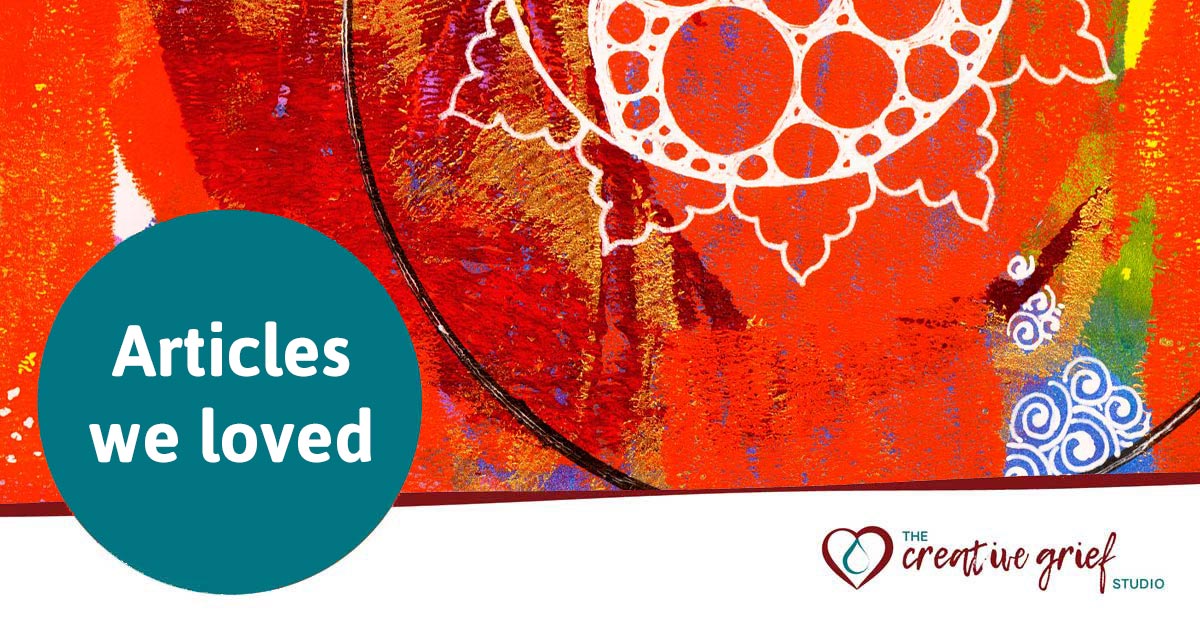We love to share with you the articles and other grief resources we find useful or inspirational. Here’s what we’ve enjoyed recently …
Everybody needs a grief support friend like Polly!
We admit that we don’t usually expect top notch grief advice from “advice columnists,” but Polly is one of a kind. A reader tells Polly that her boyfriend has just been diagnosed with terminal ALS, and they’ve decided to marry and have a baby. Other people are criticising these plans. Polly’s response is pure gold. Everyone needs at least one friend (or, second best, a grief support practitioner) like Polly!
Here’s a short excerpt we loved, but read the whole thing!
“Imagine not knowing what real love feels like,” Frida’s eyes say to you.
“Imagine not knowing how incredible and mind-bending and perfect it is to grow a garden on a stinking heap of shit.” Frida asks that you pity these laminated half-wits with their sad sacks of frozen-fish-stick wisdom about waiting 12 months or 18 months or three years to have a baby or stabbing your one favorite person in the face so you can avoid seeing him lose … anything. Forgive these fallen ice-cream cones, melting on the pavement just because someone forced them to picture slowly but surely running out of dollar bills. Pity them as they tell you that not only don’t they approve of your choice to stay with a dying man but they won’t feel sorry for you if you are destitute because you didn’t plan right.”
Creativity reduces stress
Sometimes we read research like this and just think, “Duh?!” I mean, someone got funded to do this common sense research. But hey, the other side of the coin is that now you can claim that art-making for stress reduction is “evidence-based,” and we all know that word gets program funders excited! Grief often results in similar “fight/ flight/ freeze” stress responses as other kinds of stressors. Adaptation to loss is certainly a significant stressor. Even if all you do is help your client to reduce stress symptoms, that’s a great benefit.
http://www.businessinsider.com/why-you-should-make-art-even-if-youre-bad-2016-6
http://www.psypost.org/2016/06/skill-level-making-art-reduces-stress-hormone-cortisol-43362
The repair of early trauma
We’ve come back to re-read this helpful article on supporting children who’ve experienced early trauma and loss so many times because it’s just so full of useful ideas! One of the things we loved most about it is how firmly they stand with children who’ve been traumatised in the way that they talk about them and view them. This stands in strong contrast with the pathologising language we so often read and hear when therapists are talking about “challenging” children. We also loved how their model integrates a variety of theories to provide a very practical framework that prioritises a relational perspective. After all, children learn and heal best in the context of safe, warm, and loving relationships where they can feel a sense of belonging.
http://beaconhouse.org.uk/developmental-trauma/the-repair-of-early-trauma-a-bottom-up-approach/

